Managing finances and taxes for a trucking company can be challenging, therefore having a specialized Houston trucking CPA by your side is invaluable.
My family has been in the trucking business for 30+ years. I like to think that had an impact on my decision to be a CPA. I saw the ups and downs, and the how easy it was to fall behind in taxes and hard it was to catch up. In this article, I’m going to shoot straight and give advice on how trucking companies can best manage their finances and taxes.
Separate Business and Personal Finances
An easy way to get behind in taxes is to not separate business from fun. In other words, not making any distinction between business and personal finances. One of the consequence of deducting personal expenses with your business finances is making the error in thinking you made less than you actually did.
Most business owners think about profit in terms of their business bank account. They think “If there’s no money left in my bank account, then there’s nothing to be taxed on”.
This makes sense at face value, but the problem is that personal expenses are not deductible for business. This means that if you made a $1,000 and deducted $500 in personal expenses, you will still be taxed on $1,000.
Are you starting to see how this can become a major problem?
I don’t think I need to explain further, but just to be sure – the pit gets deeper as you no longer have the $500 (it’s spent), and you are going to be taxed on $1,000 (more money gone).
The best thing thing to do is to keep your business and personal expenses separate so that you do not put yourself in the situation that I just described.
I understand that you still need to have a plan to manage your personal expenses which brings me to my second point.
Pay Yourself a Salary
In line with the principle of separating business and personal finances, paying yourself a salary is the best move to make to pay for your lifestyle. This approach not only simplifies tax compliance but also instills discipline in financial management. When business owners pay themselves a consistent salary, it mirrors traditional employment, where taxes are deducted at the source, and personal income is clearly defined apart from business revenue. This method ensures that personal expenses are funded through post-tax income, maintaining a clear distinction from business operations. Which means you can sleep easy.
The concept of paying oneself a salary addresses the common oversight among entrepreneurs who might otherwise draw irregular amounts from their business, based on fluctuating needs or desires. Such sporadic withdrawals can complicate financial planning and tax calculations, leading to potential shortfalls when tax obligations are due. By setting a fixed salary, you create a predictable stream of personal income, which can be budgeted and managed with greater precision.
Moreover, this salary serves as a benchmark for the business’s ability to sustain its operations and compensate its owner, reinforcing the financial health and viability of the enterprise. It’s a practice that underscores the importance of treating the business as a separate entity, with its financial strategies and considerations.
Paying yourself a salary is aa method that not only safeguards against the pitfalls of blending personal and business finances but also establishes a structured approach to managing your personal budget.
Note, I want to mention that not all tax structures permit owners to pay themselves a salary and distributions. My advise presumes that the Houston trucking company is a S corporation. In my experience, this is the ideal structure for this type of business. I’ve wrote about how business structures can impact tax savings here.
How To Manage Excess Profits
After you pay yourself a salary, there could be excess profits. Effectively managing excess profits is important. A strategic approach to handling these profits involves a comprehensive plan that encompasses tax considerations, reinvestment, debt reduction, and maintaining a financial safety net.
Firstly, it’s imperative to account for taxes on these excess profits. As discussed, setting aside a portion of these profits in a tax savings account or paying them in on a quarterly basis is my recommendation. This ensures you’re prepared for tax obligations without impacting your business’s operational funds. Regularly estimating your tax liabilities and adjusting the amount saved can prevent any surprises come tax season.
Reinvesting in your business represents another strategic use of excess profits. This could involve upgrading or maintaining equipment. These reinvestments can also come with tax breaks via depreciation.
Additionally, using a portion of the profits to reduce any existing business debt is wise. Lowering debt levels not only improves your financial ratios but also decreases interest expenses, ultimately freeing up more cash for future investments or operational needs.
Lastly, establishing a contingency fund with part of the profits is crucial. This fund acts as a financial buffer, ensuring you have resources to cover unexpected expenses or to sustain operations during downturns. It provides financial stability and peace of mind, allowing you to navigate unforeseen challenges that are inherent to the trucking industry.
By considering taxes, reinvesting in growth, reducing debt, and maintaining a safety net, you position your business for sustained success and yourself for more peace of mind.
Conclusion
Navigating financial management and tax planning in the trucking industry requires experience. Drawing from over 30 years of family experience in the trucking business, I’ve witnessed firsthand the challenges and pitfalls that can arise, particularly when it comes to staying ahead of tax obligations. The key to effective financial management lies in the separation of business and personal finances, paying yourself a salary, and judiciously managing excess profits.
As a Houston trucking CPA, my goal is to provide trucking business owners with the insights and strategies needed to navigate these challenges successfully.
For those in the trucking industry seeking to fortify their financial management and tax planning, partnering with a specialized CPA can make a significant difference. . To learn more about how we can support your trucking business, visit jagcpa.com. Together, we can navigate the road ahead, ensuring your financial management and tax planning are on the right track.
About The Author

Joe is a Certified Public Accountant (C.P.A.) and a Certified Valuation Analyst (C.V.A.). Joe’s professional career in public accounting began in 2012 with one of the “Big 4” international accounting firms. Since 2012, the focus of his professional engagements has been primarily in the area of business tax planning, cash flow planning and management, business valuations, and small business financial consulting.




